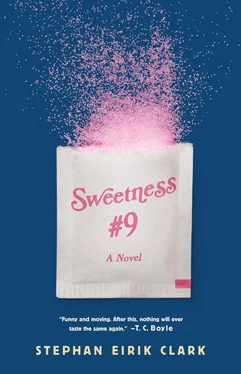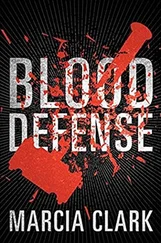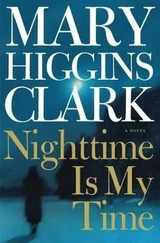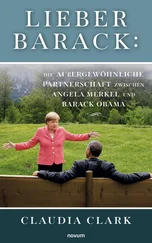I didn’t say another word. While the security guard escorted me out to the parking lot, I tried only to remember everything I’d need to say. We could throw some money at it? Such insanity! Because if we understood so little about the human brain that we couldn’t even test the effects of Sweetness #9 on it, what were we really doing?
“It’s this one,” I said, pointing to my station wagon.
The guard stood nearby as I started the car, then watched as I backed out and turned toward the gate. As I approached it, I thought there might as well be a sign arching up over the entrance: INNOVATE AND PROFIT — AND RECALL ONLY IF THEY RAISE A STINK!
I stopped to wait for the guard in the booth to lift the traffic arm. I’d seen him countless times before, but we’d never spoken. “I just quit,” I said. “And do you want to know why? You want to know what’s going on back there?”
The security guard was a black man with frosted hair and a thick mustache. He looked at me as if he were a marble statue contemplating the risks of coming to life.
“It’s not justice,” I said, “I can tell you that. They use ‘innocent until proven guilty’ like some men use the pointy end of a stick.”
Finally, he spoke through a crack in his window. “This America, baby. You think anything’s fair? Why you think at fifty-three I’m sitting on a hard chair with my face in the wind? I’m a college-educated man. How old are you?”
“Twenty-five.”
“You a baby, baby.”
He looked off toward the main entrance of the building. I glanced in the rear-view mirror and saw the security guard approaching us slowly on foot.
“Can I give you a word of advice?” he said. “Don’t let ’em do it.”
“Do what?”
“It. Whatever it is that I don’t wanna know about. ’Cause they gonna try. They gonna try and make you believe all kinds of things. It’ll get to where you don’t know top from bottom or left from right.”
I was shaking my head. “Won’t happen. I saw this with my own eyes.”
“Your own lying eyes, they’ll say.” And then, with another look toward the guard — he’d started to jog now — he lifted the traffic arm and told me, “You best git.”
And that’s just what I did, too: I got.
I DROVE AWAY LIKE STEVE MCQUEEN in a chase scene, thumping the flat of my hand into the steering wheel and shaking my head. The notion of food safety was a complete mirage! As long as a powdered beverage didn’t eat away at your flesh, or a candy bar didn’t instantaneously inflate your feet to four times their normal size, it was considered safe, perfectly suitable for the marketplace, because if it did anything else — brought on dark thoughts, triggered the primitive desire to eat — the crime would never be known or investigated, or if it was, it’d be many years later, when the crime scene was so cluttered and cold there’d be no telling if the gelatin dessert had done it with the artificial sweetener or if the butler had done it with the candlestick. Cancer, that was all they cared about. Cancer, because it was all they could possibly know.
I imagined walking up the steps of the Capitol and sitting down before a congressional committee. Fat monkeys and apathetic rats, that’s right, Senator. Perhaps it’s a Communist conspiracy. I saw it all so clearly: the microphone and my nameplate, my lawyer leaning over to whisper into my ear, and the senators sitting high above me, including the one from New Jersey who had always parroted the industry line: “Food is a wild mixture of substances designed for non-food purposes, namely its own survival and reproduction. People have always eaten at their own risk, and they always will.” I was ready to throw myself into the open maw of all this, but then my vision expanded to include my family in the front row: there was Betty, sitting with a white leather purse piled up in her lap, and our two children, a young boy in his first suit and a beautiful little girl in a crinoline dress and a pink bow in her hair.
I pulled to the shoulder of the road and pushed the button to get my hazards blinking. My throat went dry; my Adam’s apple struggled to settle into place. I was no whistle-blower, was I? Because what would happen if I talked? Once people learned I’d met with a congressman’s aide — or worse, some bearded journalist drunk on the truth — I’d never find another job in all of New Jersey. All the dreams I’d poured into a test tube — I might as well dump them down the drain and start selling refrigerators at Sears, Roebuck. And where would my family be then?
I punched off my hazards and turned on my blinker, then leaned forward into my side-view mirror, looking for a break in the traffic. When it came, I gunned it, the acceleration throwing me back into my seat.
Minutes later, when I saw the green sign moving in toward me, I let my foot up off the gas, ready to merge over toward my exit. But it wasn’t even ten o’clock; Betty wouldn’t be expecting me for another seven hours yet. So I pushed down on the accelerator and drove onward, first toward Canada, then Key West. My course only grew more precise as my gas tank neared empty. Then, pulling off the Parkway to fill up at a Texaco station, I spied a bowling alley down the street and thought it would be as good a place as any to have lunch.
Inside, a young man stood at the front counter spraying disinfectant into a long line of tri-colored shoes. He was taller than me by several inches, and had the lean looking-glass appearance of a boy who’s just been stretched out by an especially strong growth spurt. After reassuring me that the kitchen was indeed open (the only other person in here was the mechanic waxing the lanes), he took my order for a hamburger, then asked if I planned to bowl.
I realized the extent of my ambitions only then. “Do you offer any kind of discounts?” I said. “For those who bowl a lot, I mean.” He communicated almost entirely by relaxing or tightening the muscles in his jaw and around his eyes. “I’d like to stay here all day,” I explained. “At least until five.”
Saying we could work something out, he gave me a pair of size tens and I went looking for a ball that’d get the pins a-clattering. The charade would be easy enough to pull off, I thought. Each morning I’d simply give Betty a kiss at the door and leave in my suit and tie for a job that no longer existed. “I’ll call if I’m going to be late,” I thought I’d say, and then off I’d go in the car to rent my pair of shoes and try to master the 7–10 split. It’d be easy. All I’d need to do was keep up the expected small-talk and petty complaints that are the stuff of our workaday lives. “You won’t believe what Hickey did now…” Then, once I’d found suitable employment, I could sit her down on the sofa and tell her the truth. “Seeing as how we’ve been trying for a baby, I didn’t want you to worry. But truth of the matter is, these last couple of weeks I haven’t been working at Goldstein, Olivetti, and Dark.”
Yes, I thought, as I held my hand over the dryer, it’d be a funny story we’d retell through the years, and then I stepped up to the line and rolled a strike.
When I stepped through the door that evening pulling on my tie, Betty stood up from the sofa and spoke to me in a confused tone of voice.
“What’s going on?” she said.
“What do you mean?”
“What do you mean what do I mean? Your shoes.”
I followed her eyes to the floor: bowling shoes; I was still wearing bowling shoes. I’d prepaid for the day and walked out at five o’clock, so immersed in my thoughts that I’d left my Florsheims behind.
“Oh, Betty.” It was as if I’d been deboned. “I’ve had the worst day.”
Читать дальше












